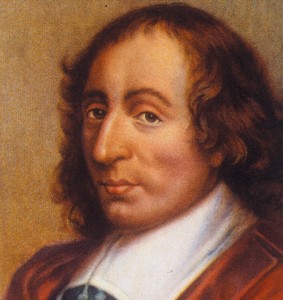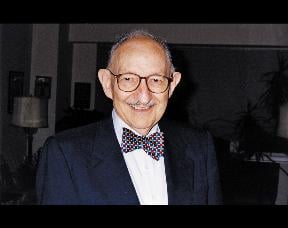The late economic historian, and former financier Peter Bernstein explains this fact well in an article published in the New York Times during the early innings of the tumult of the U.S. debt crisis. Bernstein authored a half dozen classics, among them Against the Gods, the Remarkable Story of Risk, which was published in 1996.
It was in that book that I became reaquainted with Blaise Pascal, after a near brush with him and his Pascal’s Law, and another encounter with him in statistics class in college. No stranger to ideas or practical methods of modern finance, Bernstein takes a shine to ol’ Blaise in the piece which is titled, What Happens If We’re Wrong? It is a question which Blaise agonized over when thinking about his soul. Enlightened by his mystical experience, he came up with what is known as Pascal’s Wager.
As it turns out, ol’ Blaise knew how to hedge his risks, as anyone who has bet the house on a losing horse, or who has put all their eggs in one basket (and lost the basket) has learned to do the hard way.

So to the question, “Does God exist?,” Blaise argued that it pays to remember one key thing when using our bounded rationality, as Bernstein explains below.
In short, our forecasts are wrong from time to time.
That observation sounds like a platitude, but consider the kinds of questions it provokes. How will we deal with surprises — outcomes different from what we expect? What are the consequences of being wrong in our expectations? This is the point when risk management begins to live up to its real meaning. Risk means the chance of being wrong — not always in an adverse direction, but always in a direction different from what we expected.
The key word is “consequences.” I learned this lesson many years ago from studying Blaise Pascal, a French mathematical genius in the 17th century who spelled out the laws of probability more clearly than anyone before him. This was a thunderclap of an insight that, for the first time, gave humanity a systematic way of thinking about the future.
Pascal was both a gambler and a religious zealot. One day he asked himself how he would handle a bet on whether “God is or God is not.” Reason could not answer. But, he said, we can choose between acting as though God is or acting as though God is not.
Suppose we bet that God is, and we lead a life of virtue and abstinence, and then the day of reckoning comes and we discover that there is no God. Well, life was still tolerable even if less fun than we might have liked. Here, the consequences of being wrong would be acceptable to most people.
Suppose, however, we bet that God is not, and lead a life of lust and sin, and then it turns out that God is. Now being wrong has put us into big trouble.
Heads, there is no God, tails, there is? Blaise diversified away that 50/50 risk by buying the “there is a God” hedge. Prudent man, my buddy Blaise. And a very rational one, proving in an unconventional way that faith and reason can coexist in the same mind.












